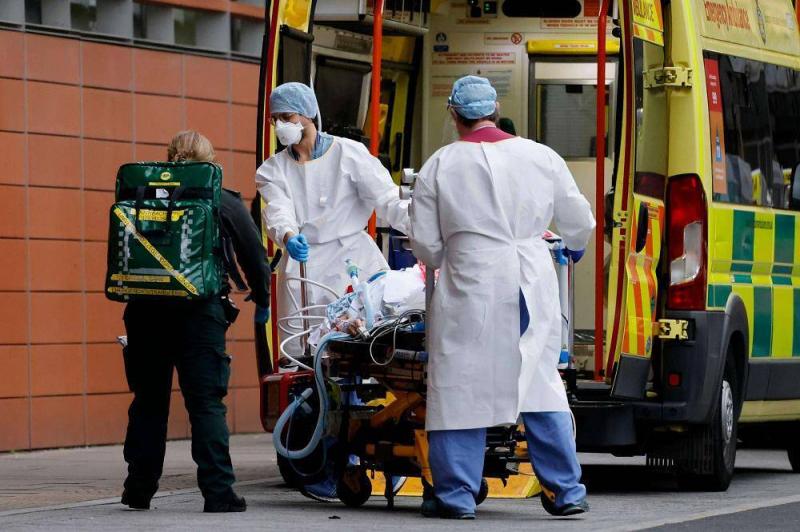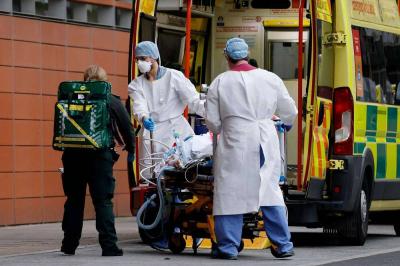The end of the infection is not the end of COVID-19 for some who have contracted it. "Post-COVID syndrome," or "Long COVID," is characterized by a long list of symptoms that may persist for months after recovery from the virus, affecting nearly every organ in the body. A respiratory disease specialist describes it as "as if the virus affects multiple organs in the body, not just the respiratory system," adding, "It’s a matter of luck, as there are no specific criteria to rely on to know who will develop post-COVID syndrome during recovery."
Leila does not suffer from severe symptoms after being infected with COVID-19, but she lost her sense of smell for over a month after recovery, and when it returned, "everything smelled like vinegar." Ali also did not regain his normal sense of smell for about three months post-recovery, despite daily training on scents to "reactivate his memory related to smell," according to his doctor. Nadia divides her life into two parts: "Before COVID and after," as she has not fully recovered yet; this is clear from her breathlessness between words. She states that "using the stairs to get home has become a nightmare, as climbing just one floor is enough to take my breath away."
Shadi, a 26-year-old, continues to suffer after eight months of the virus leaving his body from rapid heartbeats, fatigue, and scattered muscle pains, alongside mental fogginess that frightens him and prompts him to visit various clinics that agree he is experiencing the long-term effects of COVID-19.
For Dalia, a high school sociology teacher, the symptoms take a more serious turn. "After the infection, I no longer remember important details of my daily life," she adds. "One time, I forgot the gas stove was on after using it," which led her to request a medical leave to follow up on her condition, emphasizing, "I won’t enter the classroom unless I remember all my students' names." After countless tests and X-rays, it turned out that she is organ-wise healthy, and she continues some medication treatments while "handling her memory like a child, forcing herself to remember daily details to retrain it."
### Extended Symptoms and Statistics
The numbers confirm these cases, as a study published in the National Medical Journal states, "40% of those infected with COVID-19 experience post-recovery symptoms," including over 20 symptoms, some of which are severe and require follow-up, such as mental fogginess, while others are ordinary, like loss of taste and smell. "The most common symptom is fatigue, affecting up to 72% of recoverees," according to the same study, followed by shortness of breath at 40%, mental health issues at 26%, chest pain at 22%, and loss of taste and smell at 11%. The study also indicates that "more than a third of patients suffering from chronic COVID effects have pre-existing health issues and accompanying chronic illnesses from being infected with the virus, such as hypertension and diabetes." Additionally, "the proportion of males suffering from long COVID is higher than that of females, at 52.3% for males and 47.7% for females," according to the same study.
The "post-COVID syndrome" has led World Health Organization President Tedros Adhanom Ghebreyesus to criticize "herd immunity" policies adopted in some countries, resulting in an increase in infection cases, thereby raising the number of individuals who will suffer from chronic COVID effects.
### Similarities with Other Viruses
However, COVID is not an exception, as we know of several viruses that cause long-term symptoms, such as influenza and poliovirus, which sees symptoms return in 80% of its recoverees even years after infection. A study published in the Journal of the American Medical Association concludes "mental health issues and fatigue persisted in 40% of those who recovered from SARS for nearly four years," adding that "some did not return to full health." The virus responsible for "SARS" is considered the precursor to COVID, appearing in 2003 and disappearing within a year after infecting thousands.
### Medical Explanation
According to infectious disease specialist Dr. Abdul Rahman Al-Bazri, "there are no indicators to help determine who will suffer from these extended symptoms." He notes that "their duration varies from days to months" and clarifies that treatment "varies according to each symptom."
So far, "there are no definitive medical explanations for these extended symptoms," according to a team of researchers working on this issue for about a year. However, "there are various hypotheses, including blood clots that form and affect body organs during infection, which have been observed during the autopsy of some deceased individuals outside Lebanon," in addition to "excessive immune system activation, leading to allergic complications and autoimmune diseases later." The infection with COVID also leads to "disruptions in the lymphatic system, which forms a network of vessels in the body essential for the immune system," and they conclude that "the best remedy for long COVID is to avoid infection with the virus altogether."




